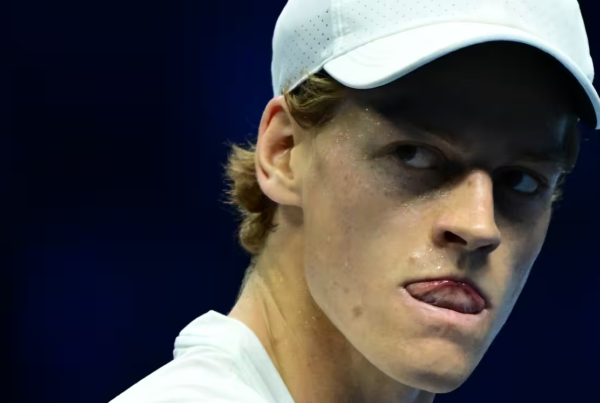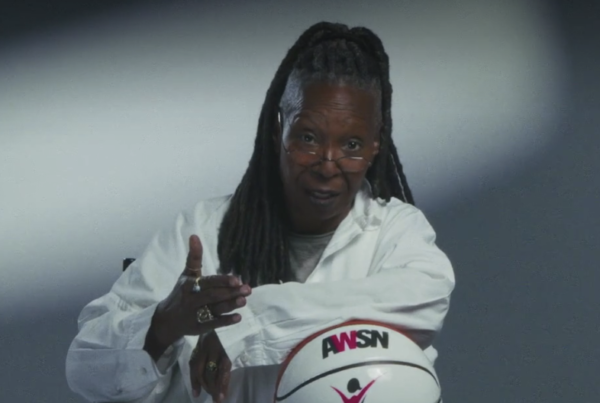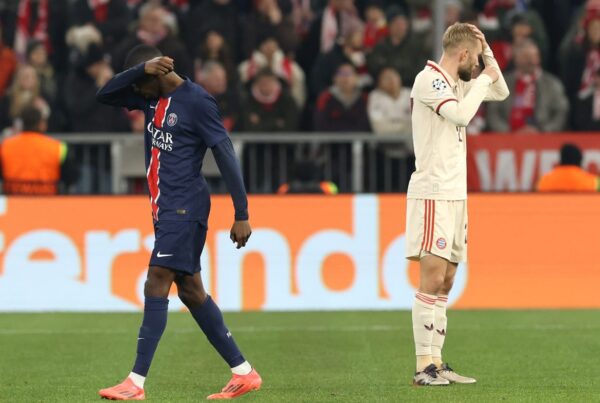Today, when we talk about the greatest champions of all time, we focus on their performances, and the records and medals that make up their achievements and their careers. Yet behind the athletes often lies a person far more important than they appear: their coach and trainer. This article takes a closer look at one of the most prolific coaches of all time, the man behind France’s new national hero Léon Marchand. His name is Bob Bowman, and his impact is greater than you imagine. Here’s a look back at his career, before discussing his impact on two of swimming’s greatest champions: Michael Phelps and Léon Marchand.
Born in April 1965 in South Carolina, Robert “Bob” Bowman was not originally destined for swimming. A music and instrument enthusiast, his first dream was to become an orchestra conductor. Unfortunately, that dream didn’t come true. While he did not pursue a career in music, he would go on to become one of the greatest coaches in swimming history. He began swimming competitively at the age of eleven and earned a place at the University of Florida, where he captained his team in his final year of university. He made his first mark when he trained under American legend Richard Quick. In the 1980s, he began his coaching career, initially as an assistant, gradually climbing the ranks. After receiving his coaching diploma in 1986, he left to develop his own style. His journey took him through various universities and clubs across Florida, Ohio, Nevada, California, Alabama, Michigan, and Arizona, eventually settling in Texas, where he still works today.
His career skyrocketed when he met a young American swimmer by the name of Michael Phelps. Phelps was about 11 years old when Bowman took him under his wing. From there, they formed a duo that remains one of the most emblematic today, that went on to build an impressive record of achievements, unmatched by any Olympic athlete today (28 medals in all, 23 of them gold, including 13 in individual races, and 61 medals at the world championships). Their partnership has progressed over the years, adjusting to new challenges and altering training methods to attain long-term objectives. Whenever one left the North Baltimore Aquatic Club where they had trained, the other followed. Their bond resembled a father-son relationship, one that powered their deep connection and acted as its driving force. Yet, Bowman treated Michael like any other athlete, pushing him to reach the highest level. And he succeeded on every front. Even after Phelps’ retirement following the Rio Games, their close bond remained, a rare and enduring partnership in the world of sport.
Bowman, however, did not only coach Michael Phelps. Over the years, dozens of swimmers have made up his squad. His Olympic record doesn’t stop there, and he is in fact one of the most prolific coaches in history. Swimmers like Hubert Kos, a recent Hungarian Olympic champion, or Chase Kalisz, Léon Marchand’s rival at the last world championships are also part of his group. He also has coached legendary names like Katie Ledecky and Caleb Dressel, whom he took with him as part of Team USA to compete in the Rio 2016 Olympic Games. Not every athlete adapted to Bowman’s methods; French swimmer Yannick Agnel, for example, didn’t embrace the Bowman philosophy in the early 2010s. Since the 1980s, around a hundred athletes have trained under this man, described by many as the most meticulous and brilliant “diamond cutter” in swimming.
But what does the Bowman method involve? How can a coach be so effective in pushing his athletes to constant progress and striving for continuous improvement? Bowman is a machine that never stops. He rises at the crack of dawn and never arrives at the pool later than 7 am, to be there before his students. He never leaves his routine, and he has made it his strength. With this wake-up call comes all the methodology, the points to apply, and the exercise circuits. His approach changes from one athlete to the next, but he always comes back to the same principles, notably full mental visualization and the achievement of short-term goals, as the stepping stones to reach long-term objectives.
He even wrote a book about it: Ten fundamental principles to apply daily, both in training and in everyday life, initially designed for Phelps, then generalised to suit everyone. Like all coaches, Bowman has his rituals, his favorite drills, and his unique work ethic. He teaches his swimmers to compete even with goggles full of water, to repeat drills endlessly, and to value effort above all, so they are fully prepared for competition. Each session ends with a daily quote meant to inspire reflection. One such quote: “Glory is fleeting. Darkness is forever.”
As Bowman doesn’t just focus on athletic training, he still wants them to never neglect their courses, and the diploma they have committed to. He expects them to excel in academics, too, and Bowman demands that his students invest as much time in their lessons as they do in the water. He sometimes even asks them to spend 6 hours in the library if they neglect their studies.
Some swimmers, in particular, praise his diligent and perfectionist work ethic, such as French backstroke specialist Camille Lacourt. He recalls Bowman as being dedicated to his students and who advocates, above all, putting in the effort. Bowman was the first to say: “Who cares as long as there’s effort,” adding that he can be considered a precursor in many areas. Contrary to his perception of being a tough coach with his students, he enjoys a reputation that is rare enough to be highlighted, and he is appreciated both in and out of the pool. His time with Team USA, before joining Team France at Paris 2024, via the North Baltimore Aquatic Club, has been crowned with success on both the university and international circuits.
And to complete the picture of Bob Bowman’s remarkable coaching career, we must focus on the most recent chapter. It’s the one that most readers were able to catch a glimpse of at the recent Olympic Games, namely the new duo formed with French prodigy Léon Marchand. It all starts with an email sent in 2021 to his university in Texas, where he coaches the university team. The young French swimmer, just 19 at the time, asked Bowman to become his coach if he agreed. Initially skeptical, Bowman changed his mind after looking at the time performances of the young boy. And so began their journey. Shortly afterwards, the young Frenchman flew to Austin, Texas, on a university scholarship. Alongside his swimming lessons, he took computer science courses. After his first Olympic Games in Tokyo, and a fine sixth place in the 400m 4-swim final, his progress was meteoric, and soon he was approaching Phelps’s record, which was thought to be untouchable. And at the 2023 World Championships in Fukuoka, Japan, the unthinkable happened. Marchand shattered the 15-year-old record by more than a second.
A real thunderclap. But that didn’t stop the deposed king from congratulating his heir on the podium, in a true handover of power. There was no animosity between the two; on the contrary, a real respect and support, as if bound by the destiny of their coach.
Bob Bowman’s legacy goes far beyond medals and records. It’s written in the discipline he instills, the lives he shapes, and the trust his athletes place in him. Whether mentoring a young prodigy like Léon Marchand or guiding the world’s greatest swimmer, Bowman proves that a coach isn’t just a supporting role—it’s the catalyst for transformation. His story serves as a reminder that behind every triumphant athlete is often a relentless, visionary coach who saw greatness before the world did.
Other posts that may interest you:
- Quels artistes ont donné leur notoriété à vos villes préférées ?
- L’Orient-Express : de l’exploit ferroviaire au mythe culturel
- Le ciné-tourisme : quelle influence pour les destinations choisies ?
- La fusion food ou l’art de rendre service à la gastronomie ?
Discover more from The Sundial Press
Subscribe to get the latest posts sent to your email.





